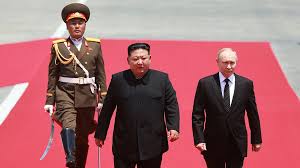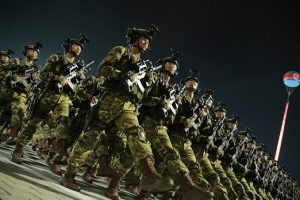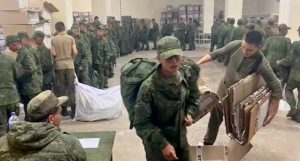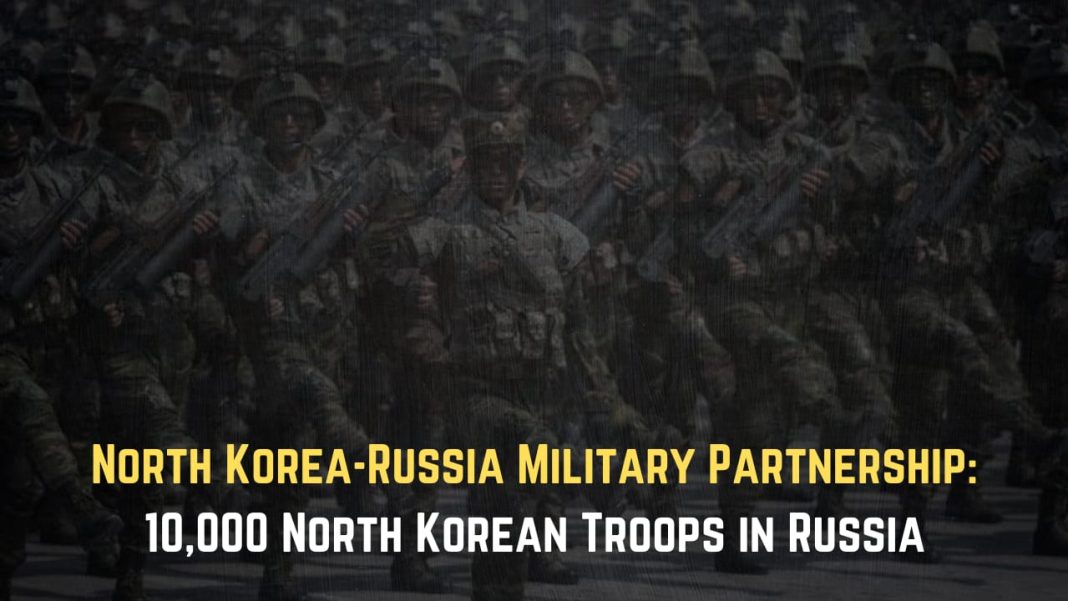Digital News Guru:
North Korea-Russia Cooperation Raises Concerns Among U.S. and Allies
In a surprising shift in international alliances, reports indicate that North Korea has dispatched thousands of troops to Russia to assist with military training. This cooperation, involving North Korean military personnel training Russian forces potentially in combat tactics, logistics, or weapon handling, represents a stark new phase in the diplomatic alignment between the two countries. As Russia faces a prolonged and challenging war in Ukraine, its need for military support and reinforcements has grown. Consequently, the burgeoning alliance with North Korea offers Russia a new pathway for sustaining its military operations, albeit raising substantial alarm in the U.S. and its allied nations.
A Strengthening Alliance in Military Cooperation
The deepening alliance between North Korea and Russia has been evident since late 2023, but this latest move reportedly involves North Korea sending approximately 10,000 soldiers to Russia. This deployment is suspected to focus on military training, though its specific objectives remain largely undisclosed. The development follows North Korean leader Kim Jong-un’s high-profile visit to Russia in September 2023, where he met with Russian President Vladimir Putin in a rare diplomatic engagement. The discussions between the two leaders reportedly included talks about mutual military support, arms exchanges, and potential economic cooperation.

The alliance offers clear mutual benefits: for North Korea, closer ties with Russia signal increased regional influence and a potential strategic partner against perceived threats, primarily from the U.S. and South Korea. For Russia, North Korea presents a valuable asset in its time of need. North Korea’s munitions and troop support provide Russia with much-needed resources as it continues to face logistical and personnel shortages in Ukraine due to ongoing Western sanctions and mounting losses on the battlefield.
Why the U.S. Is Concerned
The U.S. government and its allies have expressed alarm over this cooperation, citing potential destabilizing effects in both Europe and the Asia-Pacific region. North Korea’s involvement in supporting Russian military operations represents a direct violation of multiple U.N. Security Council resolutions that restrict North Korea’s arms trade and military exports. These restrictions were designed to contain North Korea’s nuclear ambitions and curb its ability to fund missile programs. By supplying military personnel and potentially arms to Russia, North Korea not only breaches these restrictions but also potentially accelerates its missile and nuclear program funding through this cooperation.
The alliance also poses a challenge for the U.S.-led coalition supporting Ukraine. North Korean soldiers, munitions, or logistical support could potentially prolong Russia’s military campaign, undermining Western efforts to isolate and economically exhaust Moscow. This cooperation risks extending the conflict in Ukraine and increasing military strain on Ukraine’s allies, who may need to intensify support to counteract Russian reinforcements.

Regional Concerns: Japan and South Korea on High Alert
The North Korea-Russia partnership also heightens security concerns among regional players such as Japan and South Korea. Both countries are well within the range of North Korean missile capabilities, and an emboldened North Korea raises concerns about increased missile tests and military posturing. Japan has voiced its concern over the alliance, suggesting it may lead to new rounds of North Korean provocations, including nuclear-capable missile launches. South Korea, too, has expressed apprehension, urging for greater international action to discourage Pyongyang’s involvement in the Russia-Ukraine war.
To mitigate these threats, Japan and South Korea are intensifying their military coordination with the U.S. They are also discussing expanding missile defense systems and implementing additional intelligence-sharing arrangements to closely monitor North Korea’s movements and possible arms shipments. This cooperation strengthens U.S.-led efforts to counterbalance North Korea and provides a buffer against potential spillover effects from the North Korea-Russia alliance.
Global Responses and Possible Sanctions
In response to this partnership, the U.S. has been exploring additional sanctions and diplomatic responses aimed at both Moscow and Pyongyang. New sanctions could target North Korean officials and Russian facilitators involved in arms transactions. However, Russia and North Korea have both historically demonstrated resilience to sanctions, prompting some experts to call for broader diplomatic engagement to address this cooperation.

Several U.N. members have also voiced concerns, warning that the alliance undermines the Security Council’s authority and emboldens other nations under sanctions to pursue similar cooperative strategies. As North Korea and Russia increasingly collaborate outside of international norms, this partnership might encourage other isolated nations, such as Iran, to intensify their support for Moscow, thereby complicating the global strategic landscape further.
Looking Ahead: Potential Implications for International Stability
The North Korea-Russia alliance presents significant challenges for international stability. For the U.S., a careful approach is essential to manage this alliance without provoking unintended escalations. Military and economic containment efforts will likely continue, while diplomatic channels could potentially offer means of negotiating constraints on North Korea’s support for Russia. However, as both countries face the economic strains of sanctions, their willingness to cooperate on military and strategic levels may increase, making diplomatic breakthroughs difficult to achieve.
In conclusion, North Korea’s support of Russia marks a pivotal shift that could reshape alliances and power dynamics across multiple regions. While it provides temporary mutual benefits, it risks drawing the U.S. and its allies into new phases of military and diplomatic strategy, aimed not only at containing Russia’s ambitions in Ukraine but also North Korea’s strategic reach in Asia. The evolving dynamics of this partnership underscore a rapidly shifting global order, where traditional alliances and rivalries are taking new, complex forms.
You May Also Read: Celebrate Diwali with Smart Choices: The Hottest Gadget Deals of 2024








